‘Still disbelieved’: Woman launches foundation in sister’s memory after alleged Launceston hospital rape
A Tasmanian nurse who works in the same hospital where her sister was allegedly raped by a doctor as a little girl is launching a trauma foundation to help survivors of child sexual abuse. HER MESSAGE >>
Tasmania
Don't miss out on the headlines from Tasmania. Followed categories will be added to My News.
- Bullying and nepotism still a problem in prisons service
- Launceston primary school teacher allegedly groomed and abused boys in 70s and 80s
EVERY day is tough for Launceston nurse and midwife Amanda Duncan, working at the same hospital where her sister was allegedly raped by a doctor as a little girl.
But Amanda is determined to make a difference – both through her work and a new foundation she had started in her sister’s memory.
In 2001, Amanda’s 11-year-old sister Zoe suffered an asthma attack playing hockey and was taken to Launceston General Hospital.
The doctor caring for her advised Amanda, then six, and her parents to go home.
During that time, the doctor allegedly raped Zoe, leading to years of trauma that her family says exacerbated chronic illness, ultimately leading to her death in 2017 at age 28.
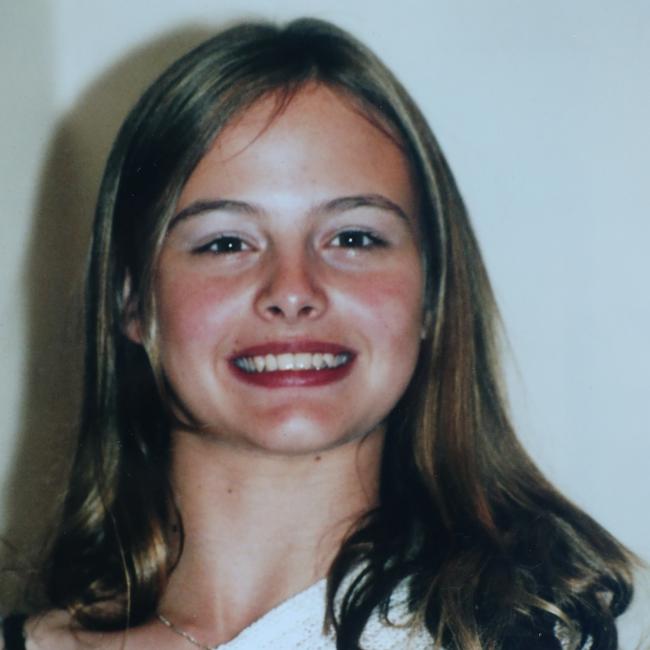
Amanda says Zoe’s story wasn’t believed by those who were supposed to help her – with the doctor denying the attack and the hospital dismissing the complaint after deeming the child wasn’t upset enough for the allegation to be true.
She said her family also faced roadblocks in dealing with police and the state government child protection unit.
Now, Amanda hopes the Two Sisters Foundation, which is just months away from launching, will direct funds and awareness into helping Tasmanian hospitals and other institutions provide safer environments for children.
“Zoe was a very kind, caring person. She was an advocate herself for other people despite her own history with abuse and trauma and she could empathise so well with other people who had experienced abuse,” Amanda said.
“She would always encourage them to speak out if that was something they were choosing to do and felt empowered to do.
“So I think that’s why the foundation is so close to me because I know it’s something Zoe was so passionate about, helping other people, so it’s important to both of us.”
Amanda said the first institution she wanted to help through the foundation was LGH itself, followed Tasmania’s educational, health and sporting facilities.
She hopes to raise donations to implement staff training programs on spotting child sexual abuse red flags, understanding reporting processes, and working with victims in a trauma-informed way.
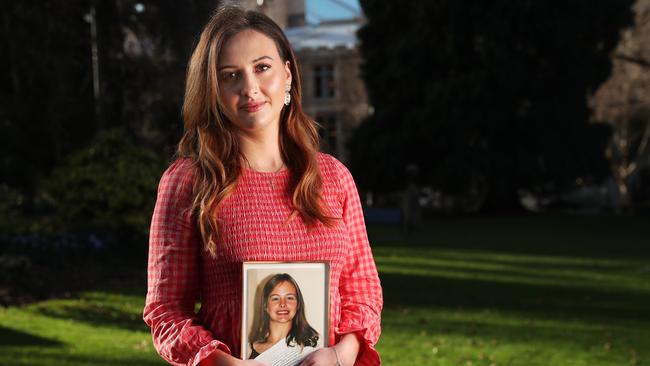
Zoe’s story was first brought to light in The Nurse podcast, which has focused on another Launceston General Hospital sexual abuse perpetrator – James Geoffrey Griffin.
Amanda said the process had been challenging but cathartic.
“After Zoe’s story was shared, there was a sense of really heightened anxiety initially, and then we felt a flood of relief afterwards. We were sad that Zoe couldn’t personally share her story because that was something she so desperately wanted to do for many, many years,” she said.
“Community education regarding sexual violence still needs to occur. There’s such an onus on the survivor that they’re continually being disbelieved and told they’re not telling the truth.”
The Two Sisters Foundation will launch in September this year, in line with hearings for the Commission of Inquiry into the Tasmanian Government’s Responses to Child Sexual Abuse in Institutional Settings.
The inquiry will examine allegations at the LGH among other institutions.
Tasmanians urged to chat to loved ones about organ donation
Kate Kruimink was devastated when her mum died unexpectedly, but because of one important dinner table chat she was able to honour her mother’s generous wish.
Ms Kruimink was living in Melbourne when her mum Karen Kruimink rang to excitedly relay the highlights of her nine week trip to Europe, which she had just returned home from.
“It was an important trip, she met up with an incredibly dear school friend, her Dutch cousin she hadn’t seen for a long time and another dear schoolfriend,” Ms Kruimink said.
“Just because we’re mother and daughter there was a mini argument that we had.
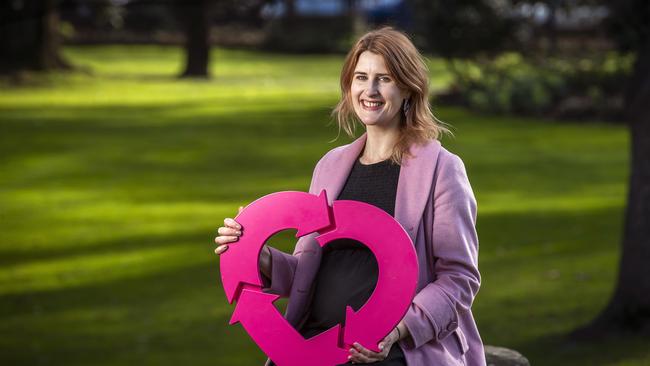
“She used to always tell me ‘never let the sun go down on an argument’. She rang me back at night time to check that we were OK, we laughed at how stupid we’d been and made plans for her to come to Melbourne.”
The next morning, Karen suffered a rare brain event. Kate Kruimink said her mum “slipped into unconsciousness and never woke up”.
Still in shock, she and her brothers were asked to choose whether or not to consent to have their mum’s organs donated.
“(Mum) had told us around the dinner table she wanted to be an organ donor and she would be willing to donate everything,” Ms Kruimink said.
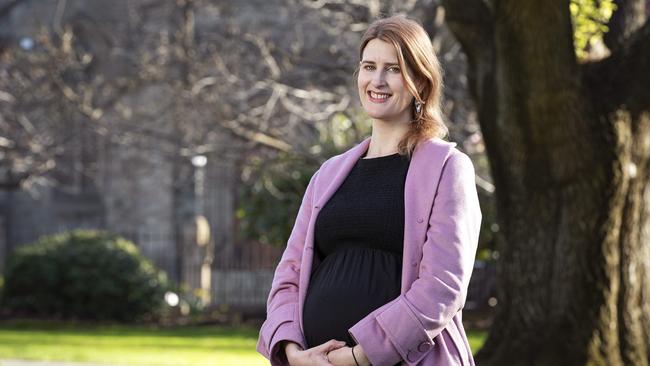
“That was a bit of a gift because it could have been such a difficult conversation. We knew the answer was yes.
“It’s so unlikely that your loved ones are going to be in that position but it’s a way of taking care of them to know you’re clear on their wishes.
“The fact there are five people who are alive because of mum or have improved quality of life because of her is just this extraordinary silver lining.”
Ms Kruimink, an Australian Vogel Literary award-winner, is writing a story about two sisters, one of whom dies leaving the other to deal with the donation process.

DonateLife Tasmania executive officer Davin Hibberd said only 40 per cent of families gave consent when a loved one was not registered and they didn’t know the loved one’s wishes, compared with 90 per cent when families knew their loved ones’ wishes and they were registered to donate.
“Our DonateLife Week campaign is a reminder to have that discussion with family,” he said.
DonateLife hopes to sign on an extra 100,000 people for organ donation this week.
To register, visit donatelife.gov.au/register or scan the QR code above.
‘Every life is one too many’: Fight to save young Tasmanians
Experts say there is “a lot that we can still be doing” to help young Tasmanians battling with their mental health in the wake of the tragic death of 19-year-old farmer Catie Loane.
The most recent data on record reveals 108 Tasmanians took their lives in 2019 — more than triple the amount of those killed on our roads that year.
New statistics released this week shows Tasmania’s age-standardised suicide rates have risen to the second highest in the country as mental health organisations work with the government to prevent further lives from being lost.
The report released by the Australian Institute of Health and Welfare (AIHW) gives an insight into the most recent data of suicidal behaviours state by state.
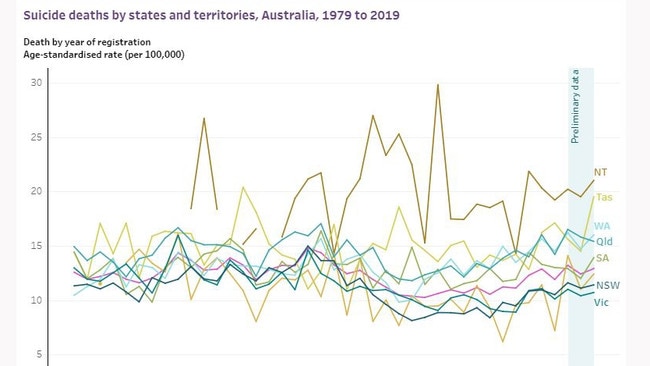
The CEO of Rural Alive, Barb Walters, said that although reaching out for help can be difficult it’s a matter of life or death.
“Every life is one too many,” she said.
“As connections have reduced in the last 18 months due to Covid, we’re losing those things that we take for granted and are becoming more and more isolated as things turn to online.”
”For young people, they may be missing out on those meaningful relationships and real connections and its really easy for them to get swept up in a world on social media and get blurred lines between reality.”
Sadly suicide remains the number one cause of death for young Australians aged between 18-24 — a sobering statistic in the wake of teen farmer Catie Loane’s death.
The 19-year-old TikTok star was celebrated in the state’s agriculture scene, her death sending shockwaves through Devonport’s tight-knit community.
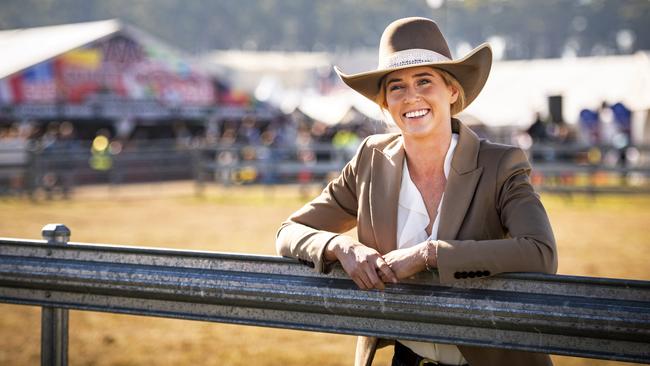
Since the onset of the pandemic the AIHW reported an increase in the use of crisis lines and mental health services nationally.
Mental Health Council of Tasmania’s (MHCT) CEO Connie Digolis said that although the recent statistics can be difficult to digest it helps the government understand the steps they need to take to provide a better pathway to prevention.
“While its really hard reading the data it’s telling us where all those flags are and where we’ve been able to track them and it points us to some clear intersections so we make sure that the right support is immediately available to those suffering so we can make a difference,” she said.
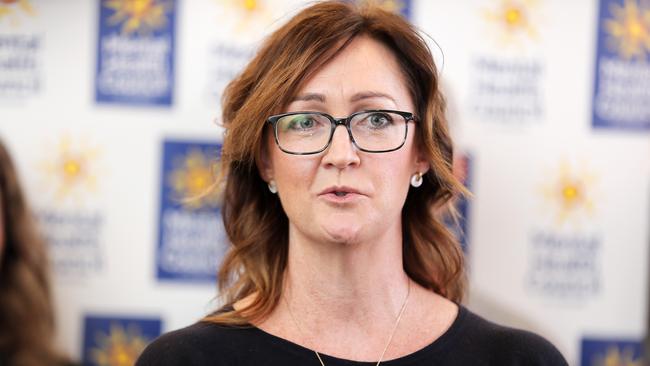
“Nationally in 2019 higher numbers were recorded across the country and that was tragic for Tassie as we saw for the first time triple numbers,” noted Ms Digolis.
“What it tells us is that there is a lot that we can still be doing.”
During the peak of Covid the MHCT launched checkin.org.au — an online tool that provides Tasmanians with a wealth of information and resources to stay on top of their mental wellbeing.
“Since May last year the presenting reason for people contacting the service is out of fear of isolation and anxiety,” Ms Digolis said.
“We want to make sure every individual is given the chance at their best life — that is fundamental to seeing risks like suicide being lowered.”


